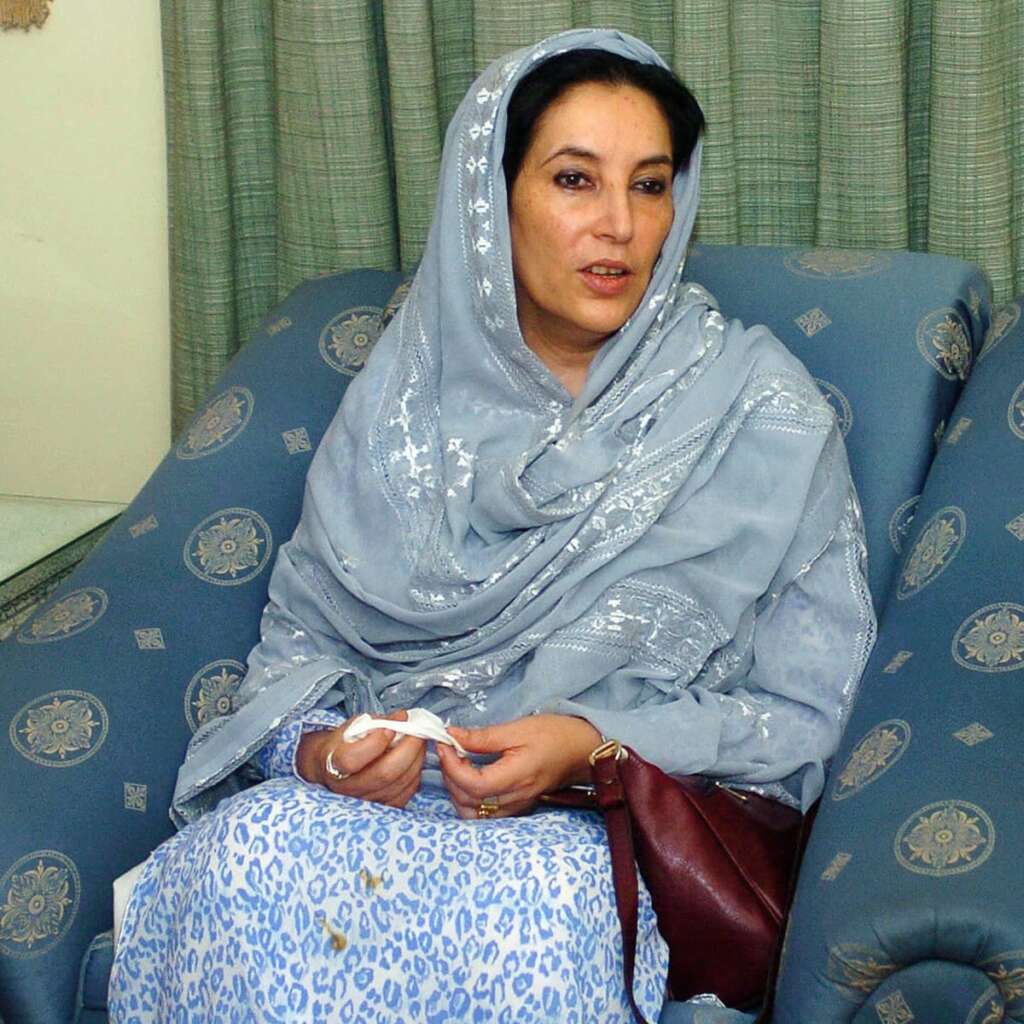Benazir Bhutto was born in Karachi, Pakistan on June 21, 1953. As the daughter of prime minister Zulfikar Ali Bhutto, she naturally took a liking to Pakistani politics and learned from him as her interest grew. To further her education, she completed her degree at both Harvard and Oxford University where she studies philosophy, political science, and international law. Shortly after she was forced to flee back to Pakistan in 1977 after her father was executed and she became the new head of the Pakistan Peoples Party (PPP) which her father had founded. She sought refuge back in England where she spent years there in exile due to martial law in Pakistan. However, on April 10, 1986, she returned to her home country, Pakistan to run in the new elections. On December 1, 1988, Benazir Bhutto won the election for Prime Minister and became the first female leader of a Muslim majority country.


She eventually served as the 11th and 13th prime minister of Pakistan from 1988 to 1990 and 1993 to 1996. In August of 1990 she was accused of corruption by president of Pakistan, Ghulam Ishaq Khan and as a result suffered a defeat in the 1990 elections. However, she stayed resilient and was able to be reelected in 1993. During her time as Prime Minister, her actions and reforms were greatly opposed and halted by conservative Islamic forces. Her ideals and views were centered on democratic and social capitalist policies however majority of the time she was unable to pass legislation to address critical issues such as widespread poverty, governmental corruption, and increasing crime. Bhutto was responsible for creating numerous political and economic policies for industrial development and growth.

She was in favor of denationalization of state-owned corporations and was firmly opposed to trade unions and rigid labor markets. Despite constant resistance, she fought hard to advocate for and advance women’s rights in Pakistan. In December 2007, in Rawalpindi, Bhutto was attending a parliamentary campaign rally when an assassin started to fire shots aiming at her. This attack killed 28 civilians, including the assassin, and more than 100 were left injured. A spokesman for Pakistan’s Interior Ministry later revealed that she died after hitting her head on part of her vehicle’s sunroof. Hundreds of thousands of Pakistanis paid their last respects to the former Pakistani Prime Minister Benazir Bhutto on December 28, as she was buried at her family’s mausoleum and Pakistani President Perez Musharraf declared three days of mourning. Her legacy and significance in Pakistan and in the world continue to live on in the hearts of millions of Pakistanis. She has come to be regarded as a inspiration and symbol for women’s rights due to her political